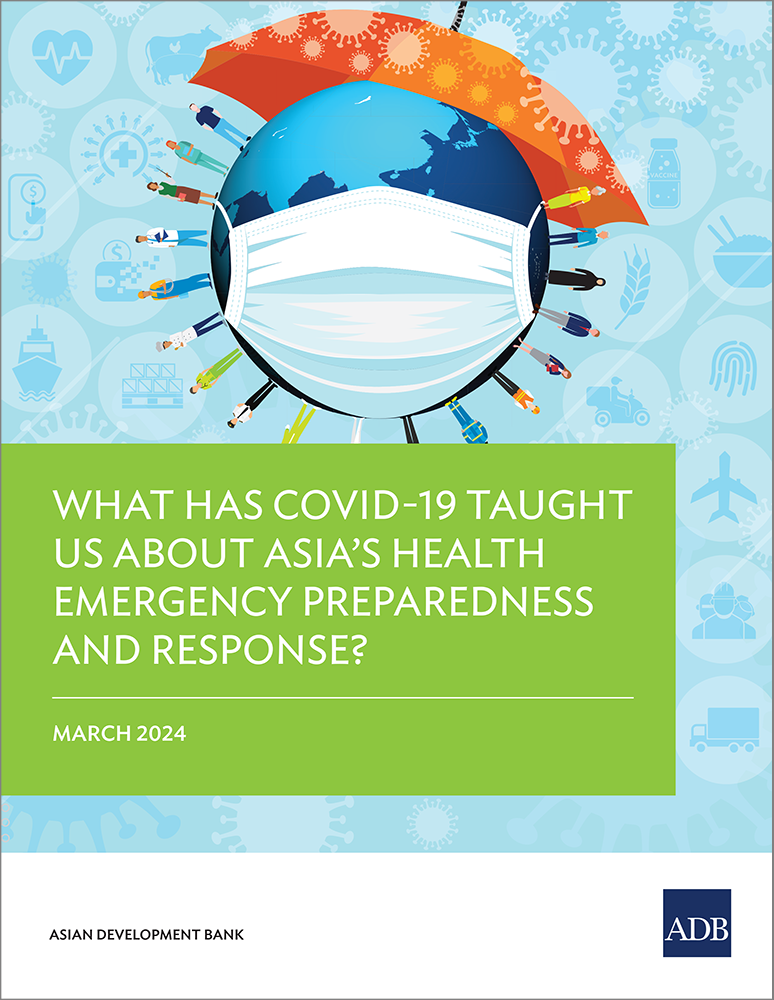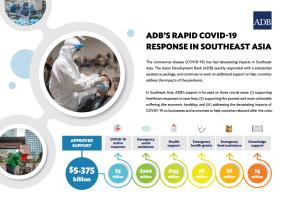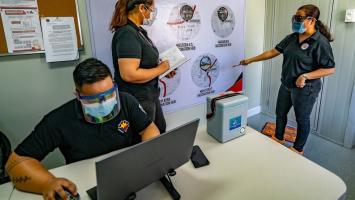What Has COVID-19 Taught Us about Asia’s Health Emergency Preparedness and Response?
The publication examines health system preparedness in terms of efficiency, surge capacity, and access to medical countermeasures and funding.
The COVID-19 pandemic exacted an enormous cost. It resulted in the largest global economic crisis since the Great Depression in the 1930s. The crisis increased poverty and widened inequality within and across economies. Evidence suggests that many economies, particularly developing economies, will take a long time to recover fully from these losses.
The emergence and uncontrolled spread of COVID-19 revealed the gaps in national and international approaches to pandemic preparedness.
This publication examines health system preparedness in terms of efficiency, surge capacity, and access to medical countermeasures and funding. It underscores the need to strengthen data infrastructure and sharing mechanisms to enable a more effective emergency response.
Contents
- Introduction
- COVID-19 Inflicted Enormous Costs
- Elements of Health System Preparedness
- Data Limitations Weakened the Effectiveness of the COVID-19 Response
- What Have We Learned from the COVID-19 Response?
Published March 2024.


